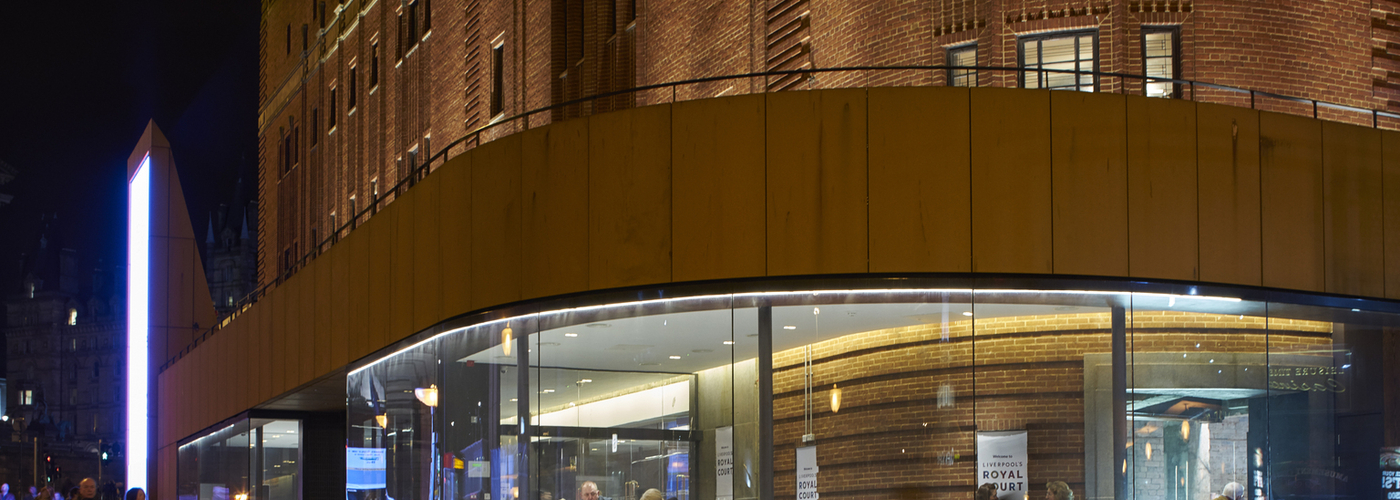Veteran dance group dropped as Arts Council reveals big winners and losers in funding for next four years
ON a day that opened with grey skies and downpours, arts organisations across Liverpool and beyond were scanning the horizon for a glimpse of sunshine.
With Arts Council England due to release details of their national portfolio organisation funding for the next four years, it was either going to be a morning for singing in the rain or for the drowning of sorrows.
On the face of it, the Arts Council’s figures seem impressive.
“In Merseyside we’re increasing our funding by 14 percent per year and will be investing a total of £38,363,716 over four years from April 2018-22 in Arts Council national portfolio organisations,” they say.
Everyman and Playhouse will receive £1,649,977 per year between them. Manchester Royal Exchange has bagged £2,332,000 per year all to itself
However, the numbers from across the north reveal some big discrepancies between funding available to Liverpool bodies and those in certain cities elsewhere.
For instance, the organisation that runs the Everyman and Playhouse will receive £1,649,977 per year to be split between the two venues. Much more fortunate is the Manchester Royal Exchange Theatre which has bagged £2,332,000 per year all to itself.
One of the big winners locally is Liverpool’s Royal Court, a theatre that has spent over ten years building a reputation as a down-to-earth venue that does things differently. Cabaret-style seating, pre-show dining and a knack for pulling in audiences that don’t often go to arts events have all helped it breathe new life into a previously crumbling building.
Although it has had Arts Council funding for specific projects before – particularly a £2m grant towards its ongoing renovation programme – the theatre has not previously been a “national portfolio” organisation. However, with today’s announcement, all that changes.
From April 2018, the Royal Court joins the national portfolio and will receive annual revenue funding from the Arts Council of over £225,000 per year until 2022, or £900,000 all together. The theatre, understandably, is cock-a-hoop.
“This recognition by the Arts Council is a great reward for all the hard work that has gone on behind the scenes and will underpin the theatre’s plans to continue to reach out to large audiences and participants across the city,” it says.
Kevin Fearon, executive producer at the theatre, is clearly delighted at its new status, not to mention the money.
“We have been described as mouthy outsiders and noisy neighbours,” he says, “but this recognition by Arts Council England means we will now be able to come to the table with other Liverpool venues when it comes to planning the future of culture in this city. We are looking forward to it!”
There was good news too for 20 Stories High, the Liverpool-based company that makes theatre with a diverse range of groups including “young people from excluded communities, emerging artists and world-class professionals”.

At a time when most organisations on the Arts Council’s list are receiving similar funding for the next four years as they’ve had for the last four, 20 Stories High has been awarded almost £212,000 per year until 2022, up from around £163,000 during the previous four-year period.
This represents a big vote of confidence in a small company that performs locally, tours nationally, and recently participated in the Sgt Pepper at 50 festival with a play that took place in Liverpool 8 living rooms. The Guardian said their piece based on The Beatles She’s Leaving Home “may be the festival’s highlight”.
Of the 24 Merseyside organisations on the national portfolio list, Homotopia and the Open Eye Gallery also receive increased funding, while other city newcomers include Culture Liverpool, Sound City and The Reader.
Devastated and disillusioned at losing our #NPO. Who will take the lead for dance now? Remaining optimistic and resilient, as always.
— MDI (@MDIStudio24) June 27, 2017
Things look less rosy for Merseyside Dance Initiative (MDI), the Hope Street-based organisation that aims to “inspire people through dance”.
Previously in receipt of around £88,000 a year from Arts Council England, MDI has been dropped completely from the new national portfolio list, forcing it to think differently about its plans for the future.
In response to the news, the organisation tweeted that it was “devastated and disillusioned” although it was “remaining optimistic and resilient, as always”.
If the government could lay its hands on a billion quid conjured from nowhere, perhaps different decisions could be taken. But, of course, that’s the kind of nonsensical subsidised thinking that gives the arts in this country a bad name.











